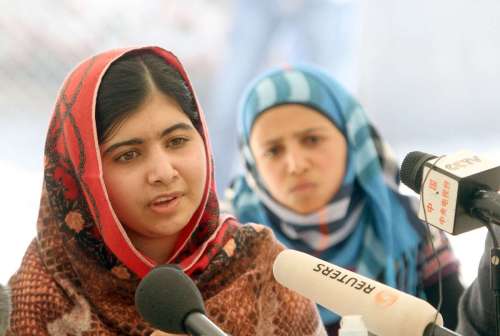Nobel Peace Prize winner and educational activist Malala Yousafzai spoke up for the rights of Rohingya Muslims, urging influential world leaders to take action against the persecution of the minority group reports Asian Lite News.

“I stand with the Rohingyas, and I encourage people everywhere to do so,” in a statement released by the Malala Fund.
“I call on the leaders of Myanmar and the world to take immediate action to halt the inhuman persecution of Burma’s Muslim minority Rohingya people,” she said.
She stressed the right of Rohingyas to citizenship in their country of birth, saying they deserved equal rights and opportunities.
“The Rohingyas deserve citizenship in the country where they were born and have lived for generations. They deserve equal rights and opportunities,” statement added.
The 17-year-old said Rohingya Muslims “deserve to be treated like we all deserve to be treated – with dignity and respect. Today and every day.”
Malala is currently in the Britain completing her studies at the Edgbaston High School, a private school in an upmarket part of Birmingham. After being shot by the Taliban in October 2012, Malala was treated at a hospital in Birmingham. She started at her school in the city in March last year.
She became a leading education campaigner since surviving the assassination attempt, but has not returned to Pakistan since owing to security concerns.
Malala and her father, Ziauddin Yousafzai, set up the Malala Fund in 2013 to fight on behalf of 62 million girls around the world denied access to secondary education, and work in Pakistan, Nigeria, Jordan, Lebanon, Sierra Leone and Kenya.
Last year, she was awarded the Nobel Peace Prize for her education campaigning, jointly with Indian children’s rights activist Kailash Satyarthi.
In recent years, sectarian violence and a thicket of discriminatory laws against the Rohingya in Buddhist-majority Myanmar have sparked the region’s largest exodus of boat-people since the Vietnam War.
More than 25,000 people, including many Rohingya but also economic migrants from Bangladesh, made the dangerous sea journey south from the Bay of Bengal between January and March this year, the UN says.